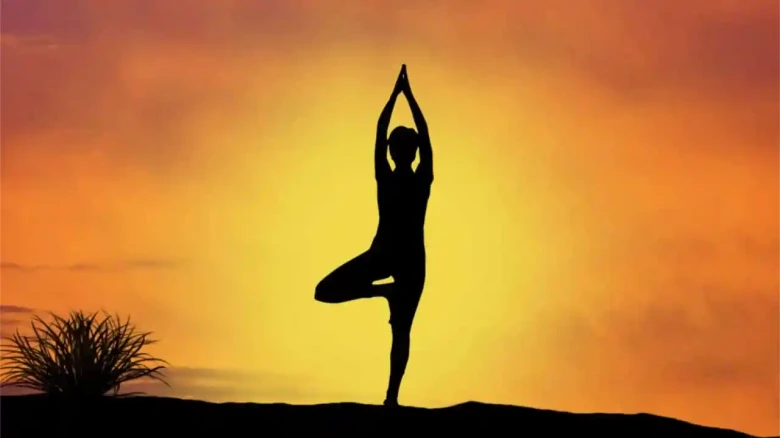Yoga is a practice that incorporates physical postures, breathing exercises, and meditation. It not only relieves tension, worry, and depression, but it also increases flexibility, strength, balance, and endurance.
Digital Desk: The term "Yoga" is derived from the Sanskrit root
yuj, which means "to join", "to yoke", or "to
unite", and represents the unification of mind and body, thought and
action, restraint and fulfilment, harmony between man and nature, and a
comprehensive approach to health and well-being. It is a priceless gift of old
Indian tradition that has evolved as one of the most reliable ways to improve
physical and mental health.
Swami Vivekananda spoke at the World Parliament of Religions in Chicago,
America, in 1893, introducing yoga to the Western world. Following that,
numerous eastern gurus and yogis promoted yoga over the world, and people began
to accept it.
Prime
Minister Narendra Modi will lead the 9th International Day of Yoga session on
June 21 at the United Nations Headquarters in New York from 8:00-9:00 a.m.
EST.
Theme
for International Yoga Day 2023
"Yoga
for Vasudhaiva Kutumbkam" is the theme for International Yoga Day 2023,
and it expresses our shared vision for "One Earth, One Family, One
Future."
Calibri;mso-fareast-theme-font:minor-latin;color:#212121">History of
International Yoga Day
Yoga dates back
thousands of years to ancient India, where it developed as a spiritual and
physical discipline.
During
his address to the United Nations General Assembly (UNGA) in September 2014,
Prime Minister Narendra Modi recommended observing the International Day of
Yoga. "Yoga is an invaluable gift from our ancient tradition," the prime
minister stated during the 69th session of the UN General Assembly. Yoga
represents the union of mind and body, thinking and action... a holistic
approach [that] is beneficial to our health and well-being. Yoga is more than
simply exercise; it is a method to reconnect with yourself, the world, and
nature."
Because to his tireless efforts, the United
Nations General Assembly declared 21 June to be the International Day of Yoga
on December 11, 2014. The UNGA stated in its resolution that "Yoga
provides a holistic approach to health and well-being in addition to striking a
balance between all aspects of life." The broader transmission of
information about the benefits of practise Yoga will be good to the global
population's health."
International
Yoga Day 2023: Significance
Yoga
has grown in popularity around the world, with millions of people using it to
improve their general well-being and health in a holistic way.
Centuries
ago, when underlining the speciality of Yoga, one of the most prominent
Sanskrit poets, Bhartrhari, said:
धैर्यं यस्य पिता क्षमा च जननी शान्तिश्चिरं गेहिनी
सत्यं सूनुरयं दया च भगिनी भ्राता मनः संयमः।
शय्या भूमितलं दिशोSपि वसनं ज्ञानामृतं भोजनं
एते यस्य कुटिम्बिनः वद सखे कस्माद् भयं योगिनः।।
Meaning
that by exercising Yoga on a regular basis, a person can imbibe certain
extremely beneficial attributes such as courage, which defends like a father,
forgiveness, which is held by a mother, and mental serenity, which becomes a
permanent companion. Through daily Yoga exercise, truth becomes our kid, mercy
becomes our sister, self-control becomes our brother, the earth becomes our
bed, and knowledge satisfies our desire.
Yoga
is a practice that incorporates physical postures, breathing exercises, and
meditation. It not only relieves tension, worry, and depression, but it also
increases flexibility, strength, balance, and endurance.
According to recent research, practising yoga on a regular basis
can help improve lung function, reduce asthma symptoms, and even enhance the quality
of life for those suffering from chronic obstructive pulmonary disease (COPD).
Pranayama, or breathing exercises, can help enhance lung capacity, oxygenation,
and stress reduction, all of which can aid respiratory health.
The
World Health Organisation (WHO) has also asked its member countries to assist
their citizens in reducing physical inactivity, which is one of the top ten
main causes of mortality worldwide and a major risk factor for noncommunicable
diseases like cardiovascular disease, cancer, and diabetes.


Leave A Comment